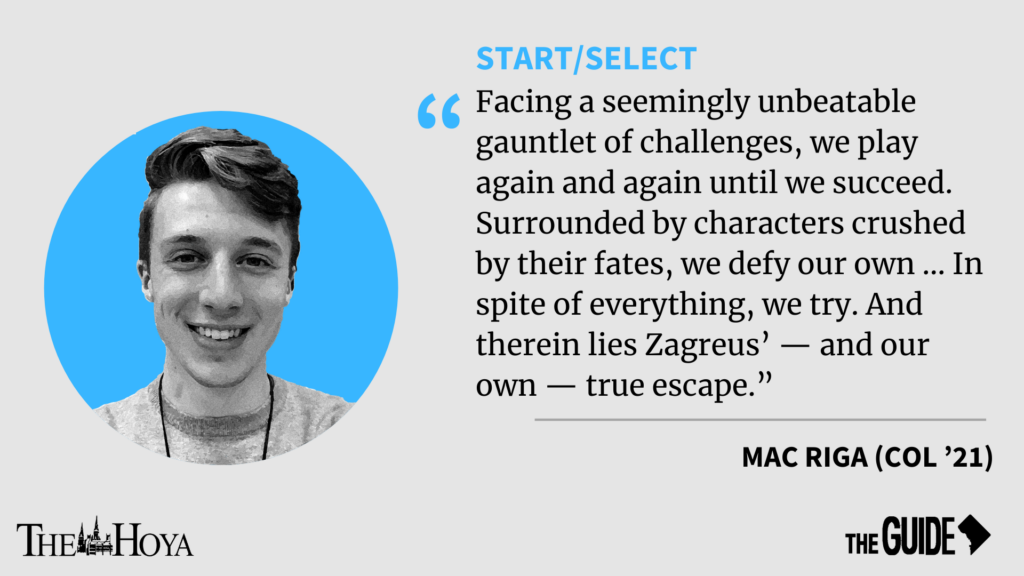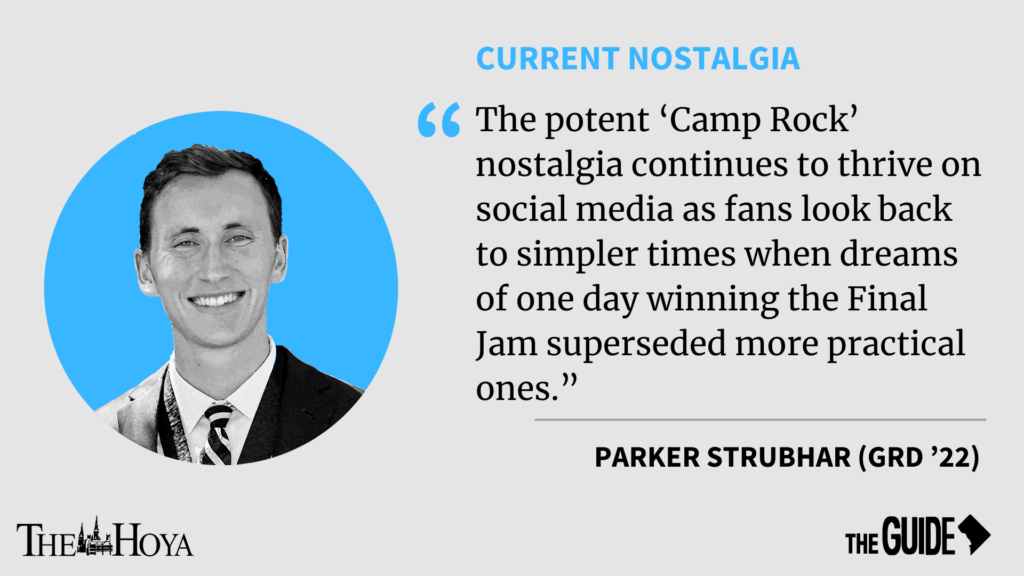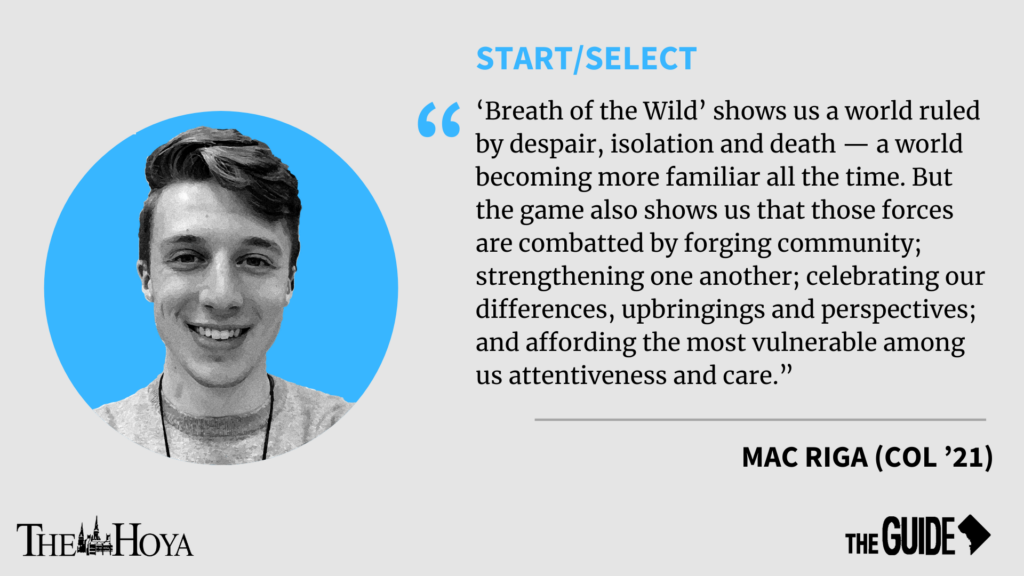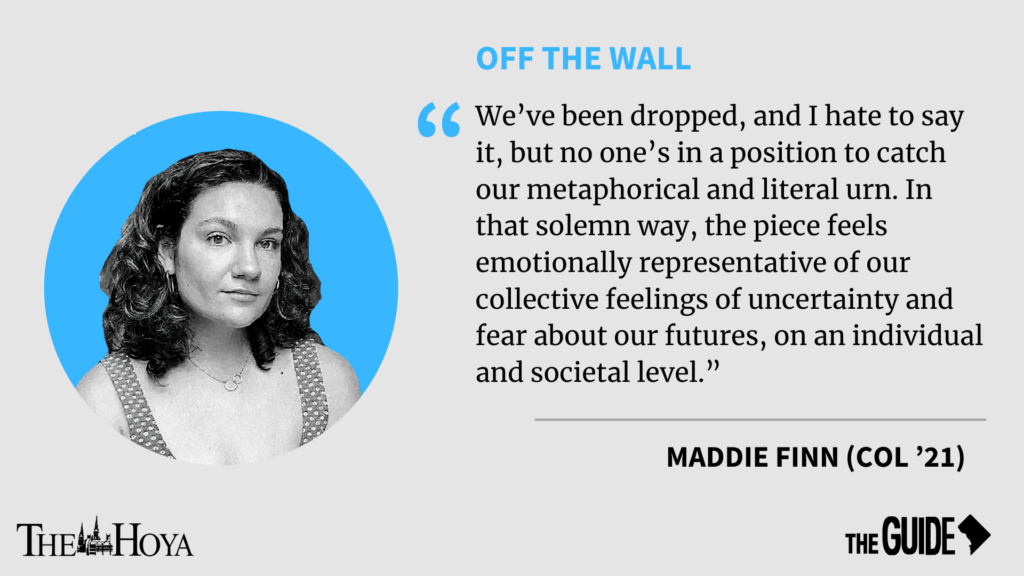For many Georgetown students, stress is part of college life. Overwhelming amounts of school work, pressure to find a job or an internship and the need to join exclusive student organizations generates discussion of stress culture on campus.
Hoyas who experience such stress are not alone. The National College Health Assessment from spring 2017 found that 88.4 percent of college students felt “overwhelmed” by work at some point within the past year. Furthermore, one-third of students reported that stress negatively affected their academic performance and 26.2 percent claimed that anxiety was similarly detrimental.
Given the prevalence of stress among college students, what steps can be taken to improve our college experience? Perhaps the solution lies in a well-worn saying: “Laughter is the best medicine.”
In fact, studies have shown positive correlations between happiness, health and longevity. Well-being, including positive feelings and positive demeanor, correlates with lower risk of death by any cause, according to a study from the University of Texas-Houston. Another study found that subjects who reported greater happiness in their 20s were more likely to live longer than their less-happy peers. Given this data, perhaps happiness does have medicinal effects.
Some experts also claim that laughter reduces stress. In an article in Time magazine, Dr. Lee Berk, who has conducted research on laughter for nearly 30 years, explained that laughing causes the body to release chemicals such as dopamine that combat anxiety and block the release of hormones that induce stress.
But can laughter, or happiness and socialization more broadly, positively affect stress levels, success or academic performance among college students?
A study published in The Journal of Happiness and Well-Being found that college students’ stress levels are related to their personal relationships. Given that low stress among college students corresponds with high emotional closeness with friends and relatives, the researchers concluded that high emotional closeness reduces stress, which in turn increases happiness. They also suggested techniques such as deep breathing and listening to music, which may help college students to combat stress. Stress reduction may depend more on relationships and habits than on having a good sense of humor.
Just as laughter may not be enough to reduce stress, it cannot cure a low GPA, either. While students who are cheerful often perceive their academic abilities positively and predict that they will be successful in college, they in fact tend to have lower GPAs and SAT scores than their peers who are not cheerful, according to a study from the University of Southern California.
A study published in the Journal of Research in Personality came to a similar conclusion: The happiness that accompanies increased socialization and cheerfulness predicts a lower GPA. Perhaps students who are happier spend more time socializing and less time studying than those who are unhappy. So when we go to Lau, we had better hit the books instead of chatting with our friends about how much work we have to do.
Although the cheerful disposition that laughter indicates does not boost academic performance, it does enable students to cope with stress more effectively. An experiment conducted by researchers in Austria found that students who have a positive demeanor recover from academic stress more completely than those who do not, even if they expressed negative feelings while they were experiencing the stress.
Although laughter, taken to mean outward happiness or socialization, may improve our ability to recover from the stress of midterms or the pressure of club applications, it is not an answer to all of Georgetown’s challenges. To face the stress and academic rigor of college, we should also turn to our close friends and relatives, try out some stress management techniques and take advantage of Georgetown’s Counseling and Psychiatric Services.
Counseling and Psychiatric Services is located behind Darnall and open 9 a.m. to 5 p.m. Monday through Friday. Its business hours phone number is 202-687-6985. In an emergency, contact a clinician on call at 202-444-7243.
 Vera Mastrorilli is a junior in the College. Her column, TESTING TRUISMS, has been renewed for the spring semester.
Vera Mastrorilli is a junior in the College. Her column, TESTING TRUISMS, has been renewed for the spring semester.














